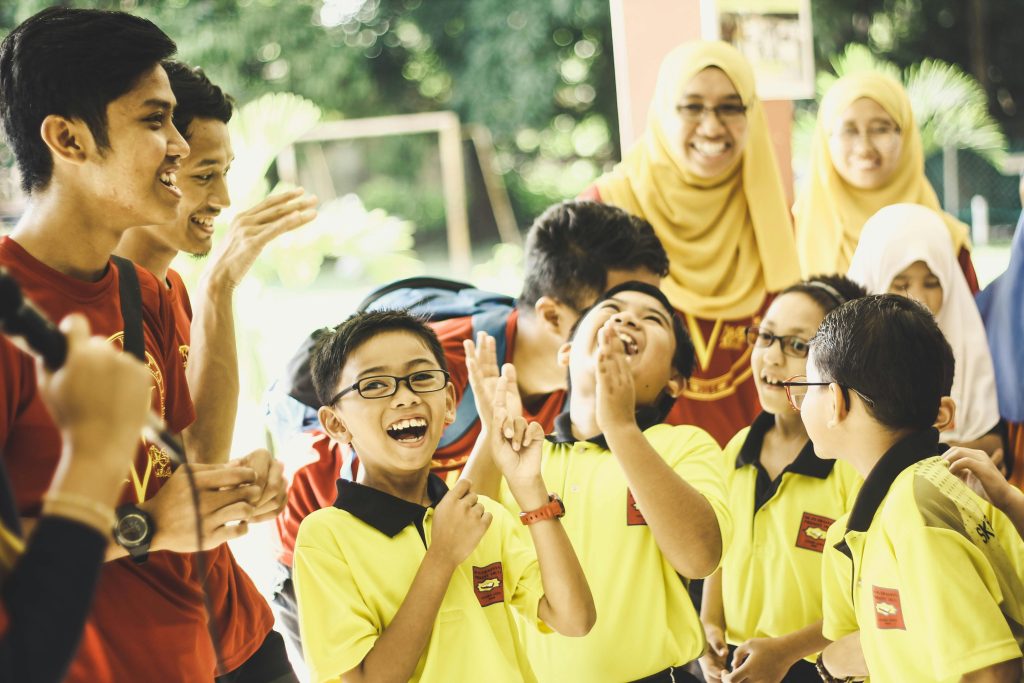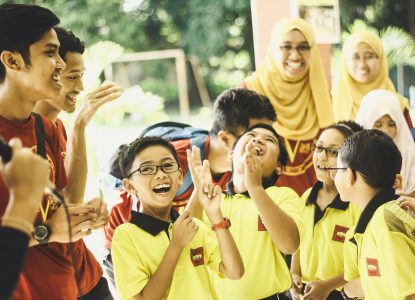By JoAnne Wadsworth, Communications Consultant, G20 Interfaith Forum
– – –
On March 12, 2024, the G20 Interfaith Forum co-hosted a side event at the 55th session of the UN Human Rights Council in Geneva entitled “The Role of Interfaith Education and Cross-Cultural Religious Literacy and Human Rights Education in Combating Intolerance, Negative Stereotyping and Stigmatization of Persons Based on Religion or Belief.” The event, co-sponsored by the UN ambassadors for the Gambia and Indonesia, featured examples of relevant educational initiatives in Indonesia, Japan, Geneva, and Brazil.
Speakers included Ambassador Muhammadou M.O. Kah, Permanent Representative of the Republic of the Gambia to the UN; Ambassador Achsanul Habib, Deputy Permanent Representative of the Republic of Indonesia to the UN; Matius Ho, Executive Director of the Leimena Institute in Indonesia; Maria Lucia Uribe, Director of Arigatou International; David M. Kirkham, Executive Director of GO-HRE (Human Rights Education); Prof. Rodrigo Vitorino Souza Alves of CEDIRE; and Prof. Katherine Marshall, Vice President of IF20 and Senior Fellow at the Berkley Center for Religion, Peace, and World Affairs.
Read the complete transcript of the meetings here.

Interfaith education and collaborative networks are central to the UN Human Rights Council’s Resolution 16/18, which aims to combat religious intolerance, discrimination, and violence. The panel discussion explored programs encouraging cross-country and regional collaboration, while also looking ahead to the 2024 G20 Interfaith Forum to be held under Brazil’s G20 presidency.
Welcome and Ambassadorial Comments
Professor W. Cole Durham, Jr., President of the G20 Interfaith Forum Association, moderated the event and provided opening remarks.
Ambassador Muhammadou M.O. Kah, Permanent Representative of the Republic of The Gambia, emphasized that combating religious hatred is essential to preserving societal peace and security. He highlighted The Gambia’s leadership in drafting a UN resolution promoting a culture of peace, stressing that education is key to replacing ignorance and animosity with insight and respect.
“By empowering individuals with the knowledge and understanding of different cultures and religions, we can replace ignorance with insight, suspicion with empathy, and animosity with respect. This education is not a luxury, but a necessity for the survival and flourishing of our global community.”
Ambassador Achsanul Habib, Deputy Permanent Representative of the Republic of Indonesia, underscored Indonesia’s commitment to religious literacy and human rights education as crucial for fostering mutual understanding in the religiously diverse nation. He outlined recent interfaith initiatives and the integration of human rights principles into the national curriculum.
Presentations on Educational Initiatives
Matius Ho, Executive Director of Indonesia’s Leimena Institute, shared about their Cross-Cultural Religious Literacy (CCRL) program launched in 2021 to address rising intolerance. The initiative has trained over 7,000 teachers across Indonesia’s provinces using a framework of personal, comparative, and collaborative religious competencies. Graduates have gone on to develop lesson plans and lead interfaith encounters for their students.
Maria Lucia Uribe, Director of Arigatou International, presented on their ethics education programs operating in six countries to promote interfaith and intercultural learning. Working with ministries of education, the programs have reached over 8,000 students and demonstrate increased respect for diversity, conflict resolution skills, and social cohesion.
David M. Kirkham, Executive Director of GO-HRE (Human Rights Education), discussed his organization’s practical, child-centered human rights education curricula being implemented in multiple countries worldwide. GO-HRE emphasizes freedom of religion as a fundamental human right and works to instill values of human dignity starting with children’s immediate circles of family, friends and community.
Prof. Rodrigo Vitorino Souza Alves of the Brazilian Center for Studies in Law and Religion outlined their research-based initiatives equipping religious leaders, educators, judges, and parliamentarians to uphold freedom of religion and belief. Interactive, peer-learning methodologies have successfully brought together diverse groups.
Central Themes and Conclusions
In her concluding reflections, Prof. Katherine Marshall of the G20 Interfaith Forum identified four key themes emerging from the discussion relevant to the G20 process:
- The challenge of managing diversity
- The importance yet complexity of imparting shared values through education
- The need for enhanced religious literacy
- Concern over rising intergroup tensions worldwide
Ambassador Kah provided a final summary, emphasizing the need to strengthen educational frameworks, foster constructive dialogue, engage in legal and policy reforms, safeguard vulnerable groups, and leverage technology to broaden the reach of initiatives promoting tolerance.
The side event showcased powerful examples of education’s potential to combat religious prejudice and discrimination by equipping leaders and youth with competencies for interfaith understanding. Participants expressed commitment to ongoing collaboration to advance this urgent agenda.
– – –
JoAnne Wadsworth is a Communications Consultant for the G20 Interfaith Association and acting editor of the “Viewpoints” blog.


